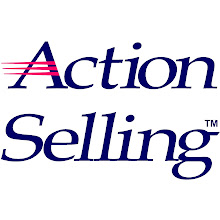A lot of salespeople are good at organizing. Some are even good at strategizing. But very few know how to use those skills to devise an effective, repeatable plan for gaining commitment from customers—
selling skills and a plan that begins to take shape before you make your first sales call.
If you can’t answer these questions before the call, uncover the answers during the call.
The more you know about your client’s business before the call, the better equipped you are to ask excellent questions that uncover needs your products can address and that tell you how to present them in the form of a solution. Before making a sales call, do some digging (on Web sites, for example) to answer the questions on the prep list below. If you can’t answer them all before the call, at least you’ll know what information you need to dig for during the call. This will improve your
sales presentation.
Action Selling is a
Sales Training Program designed to hlep you develop Questions to Organize for the Call.
What does the company do?
What does it currently buy from vendors similar to you?
What are its key business issues (problems and opportunities)?
What does your individual customer do (the person upon whom you’re calling)?
What might be his or her personal stake in a solution you could provide?
Questions to Strategize for the Call
Who is my competition for this sale?
How is my company or my product better?
What needs are most likely to exist for my solutions?
Why will this customer buy? That is, what are the personal, emotional issues underlying the business needs?
What is the time frame for the customer’s buying decision?
Who makes the ultimate buying decision?
How will the decision be made (e.g., in consultation with a group of stakeholders)?
Questions to Shape a Game Plan for the Call
What commitment do I intend to gain as a result of this call? (A buying decision? A future meeting with all of the decision-makers? Preferred-vendor status?)
What are the key questions I need to ask?
What ultimately will cause this person or company to buy from me?
If you can answer all of those questions, you’re ready to make a professional sales call. If you don’t have all the answers yet, these are questions to ask during the call. This process goes well beyond any other
selling techniques. Either way, you will be well organized, you will have a strategy, and you’ll have a solid game plan. When those pieces are in place, your chances of gaining commitment from the customer increase geometrically.
Contact us to learn more about the most effective way to prepare for sales calls.
